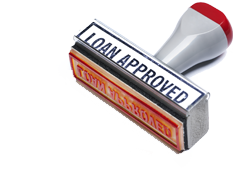SELECT: Purchase loan, Refinance loan or Loan Modification:
Purchase mortgage loan: is a note secured by a mortgage or deed of trust given by a buyer, as borrower, to a seller, as lender, as part of the purchase price of the real estate. It is a method of financing a home in which buyer borrows from the seller instead of, or in addition to, a bank. It is sometimes used when a buyer cannot qualify for a bank loan for the full amount. It may also be referred to as seller financing or owner financing.
There are generally 2 types of purchase money mortgages: One) a mortgage given by the buyer of property to the seller to secure the balance of the purchase price (“seller take-back” loans) and secured by the property being sold (i.e., not by some other property); or, Two) A “third party” purchase money mortgage, given by lender to secure a loan which was used to pay all or part of the purchase price on the dwelling occupied totally, or in part, by purchaser. A purchase money mortgage involves the owner’s/borrowers’s risk of losing the property and the foreclosure’s impact on the owner’s credit.
Refinance Loan: Refinancing is the replacement of an existing debt obligation with a debt obligation under different terms. The terms and conditions of refinancing may vary widely by country, province, or state, based on several economic factors such as, risk, projected risk, political stability of a nation, currency stability, banking regulations, borrower’s credit worthiness, and credit rating of a nation. In many industrialized nations, a common form of refinancing is for a place of primary residency mortgage
If the replacement of debt occurs under financial stress, refinancing might be referred to as debt re organizing.
A loan debt might be refinanced for various things.
a) To take advantage of a better interest rate a reduced monthly payment or a reduced term.
b) To consolidate other debt(s) into one loan (a potentially longer/shorter term contingent on interest rate differential and fees
c) To reduce the monthly repayment amount (often for a longer term, contingent on interest rate differential and fees)
d) To reduce or alter risk (e.g. switching from a variable-rate to a fixed-rate loan)
e) To free up cash (often for a longer term, contingent on interest rate differential and fees)
Refinancing for reasons 2, 3, and 5 are usually undertaken by borrowers who are in financial difficulty in order to reduce their monthly repayment obligations, with the penalty that they will take longer to pay off their debt.
In the context of personal (as opposed to corporate) finance, refinancing multiple debts makes management of the debt easier. If high-interest debt, such as credit card debt, is consolidated into the home mortgage, the borrower is able to pay off the remaining debt at mortgage rates over a longer period.
For home mortgages in the United States, there may be tax advantages available with refinancing, particularly if one does not pay alternative min tax.
Loan modification: is a permanent change in one or more of the terms of a Borrower’s loan, allows the loan to be reinstated, and results in a payment the Borrower can afford. Agent San Francisco Sf real estate.
Agent San Francisco SF Real Estate


